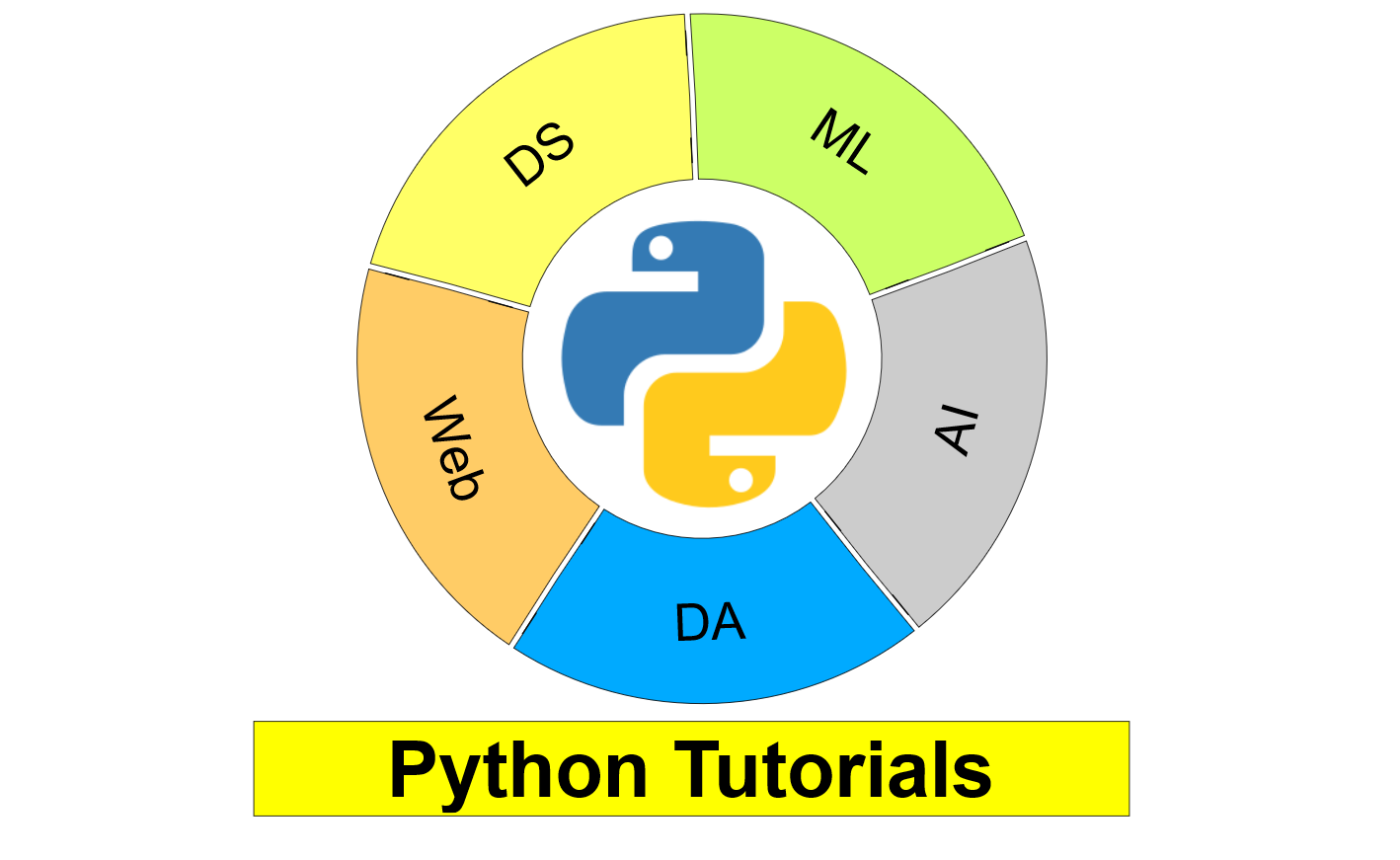Python Tutorials
Python is a high-level programming language similar to C++, Java, and others. This page contains links to additional Python tutorials to learn Python programming language in detail.
Python History
Python Features
Python is a powerful, high-level, object-oriented programming language.
Install Python
Installing Python on the Windows operating system
Install Python on CentOS
Python IDEs
PyCharm is a full-featured IDE for Python and web development. It’s Lightweight and best suited for Python and Scientific development.

Python Tokens
Python Operators
An operator is a special symbol or keyword that performs operations on the variables or values(operands). Many operators are available in Python language to perform various operations.
- Assignment Operators
- Arithmetic Operators
- Relational Operators
- Logical Operators
- Bit-wise Operators
- Membership Operators
- Identity Operators
Control Statements
Python control statements include if, if-else, break, continue statements, etc, which are fundamental for creating complex programming logic.
Loops
There are mainly two types of loops in Python: for loop and while loop. The tutorials cover both for loops and while loops, which are essential for iterating over sequences or executing a block of code multiple times.
Python Functions
A function, or a subprogram, is a set of instructions that another program or subprogram can invoke. Functions greatly simplify the programming process using a single set of instructions for all invocations. This means that programmers do not have to write the same instructions multiple times, making the code more concise, easy to read, and maintain.
Let’s explore the different types of Python functions, including built-in, anonymous, nested, and recursive functions, and their advantages.
- Types of Python Functions
- Python In-built Functions
- Python Anonymous Function
- Python Nested Functions
- Python Recursive functions
- Advantages of Python Functions
Python Exceptions
Package Management
Python Modules
This tutorial explains how to create and import Python modules, allowing for code reusability and avoiding repetitive coding.
Set Operations & Methods
These tutorials provide details on set operations like union, intersection, difference, and symmetric difference, along with various set methods.
Running a Python selenium script
Getting user input in Python
Turtle module in Python can be used to create simple shapes and graphics.
Python Libraries for Data Science
Python Programs
Data Visualization in Python
Data visualization uses charts, graphs, maps, and other visual elements to represent data and information. It is a helpful tool that allows businesses to make informed decisions by displaying patterns, trends, outliers, and correlations in a given dataset using Python.